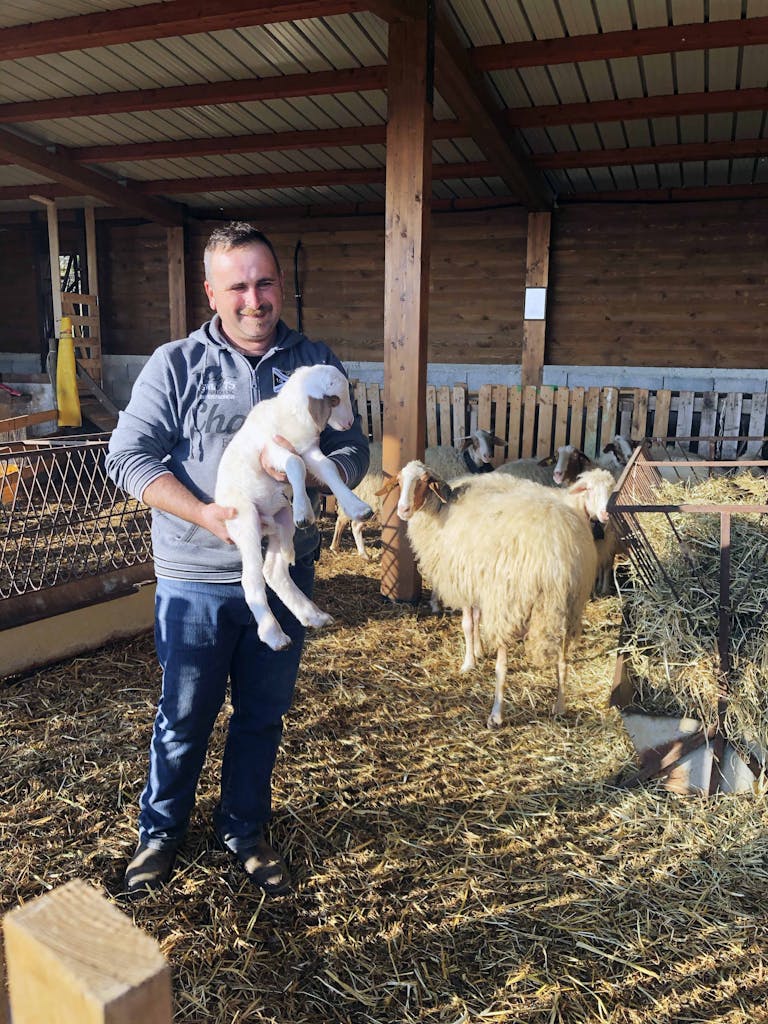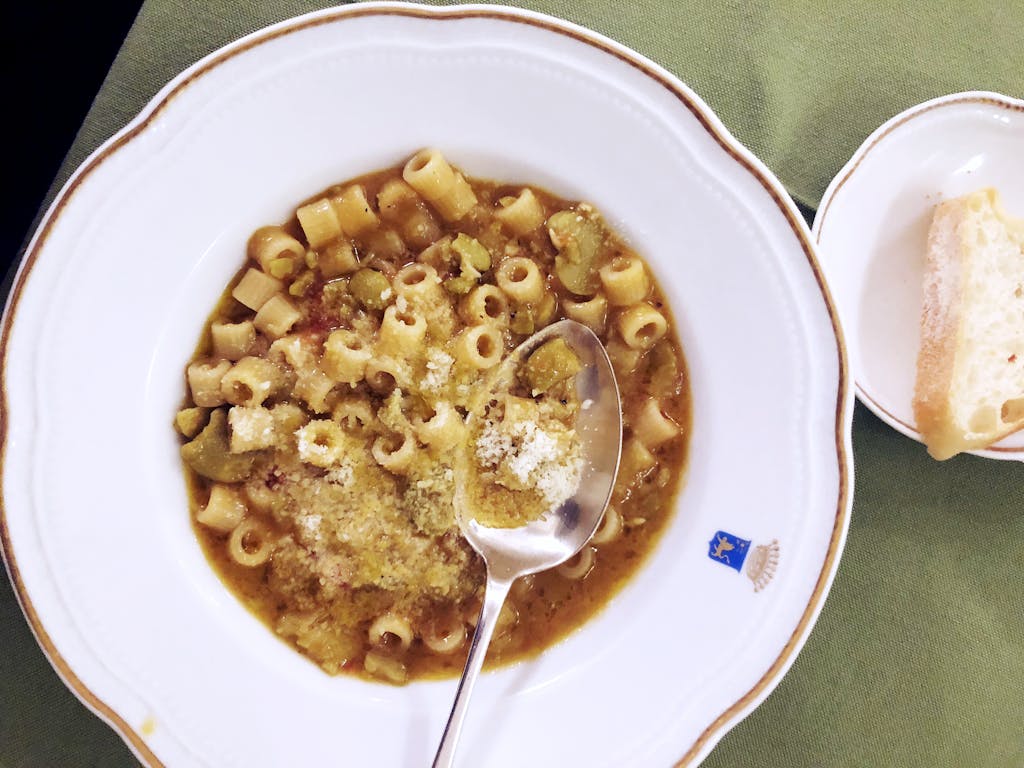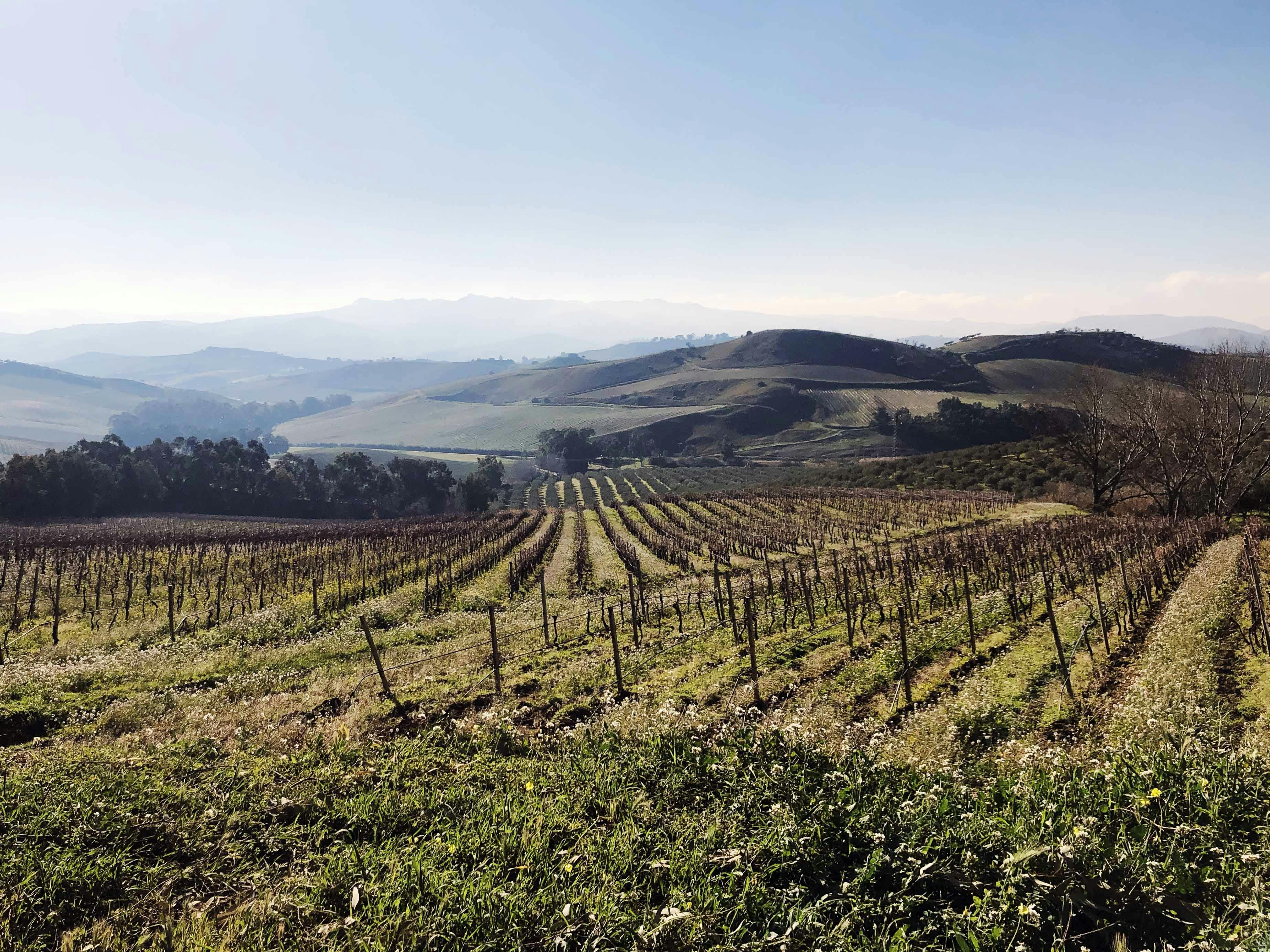The Heart of Sicily in a Dish: Pasta Pasta con le Fave Recipe
In Guardians of the Sicilian Miracle, the latest podcast from S.A.L.T. Lab Radio, Adam Sachs shares one particularly special discovery: The pleasure of the down-to-earth culinary tradition of Pasta con le Fave (pasta with beans), which in many ways embodies the heart of Sicily. In this companion story, we trace the origins of the dish — and offer the best recipe for making it in true Sicilian style.
Few family recipes enjoy a place at the table for generations, let alone hundreds of years. But one such Sicilian pasta, Pasta con le Fave, is granted this privilege, and there is a reason for it.
Located in the heart of Sicily, the vast Tasca d’Almerita Regaleali vineyard estate stretches over 1,400 acres of rolling hills. Vineyards, fields of wheat and olive groves wrap around the main house or Case Grandi, built of stone with a towering magnolia tree in the courtyard. Here, the Tasca d’Almerita family, one of Sicily’s noble families, has lived, entertained and farmed for over eight generations. Today, the family operates a small hotel in the main house, where guests can explore the grounds and learn about wine, the history and the family mission.
Teams of enologists and agronomists produce 18 labels of wine from the sweet sun-dried Passito to the structured Nero d’Avola. They grow eight varieties of olive and five types of ancient durum wheat. Once pressed, the fruit of the ancient trees turn into liquid gold and the milled grains become loaves and pasta that find their way into the kitchen of the Case Grandi. And the grapes … are everything. Two-hundred years of trial and error have shown the family how “to look at the future through our wine glass.”

With each season, a new flavor. In the winter, scruffy Comisana sheep graze the property, leaving behind natural fertilizer. Their milk gets churned in cauldrons, the artisan way, producing fresh ricotta available year-round. In the spring, bright shoots of fava bean sprout between the grey twisted trunks of the prized trellised vines. These legumes give the topsoil nutrients, and most importantly, offer the grape roots a boost of nitrogen.
When the crisp days of early spring begin, Sicilians at Regaleali and beyond remember their first bites of Pasta con le Fave made by grandmothers. On March 19, the day of Sicily’s patron saint, San Giuseppe, fava beans are picked, peeled and eaten for months to come. A symbol of good luck, the crop once prevented a famine.
In the kitchen of Case Grandi — where elaborate meals in the style of 19th century French-Sicilian cookery once dominated — Maria, the family cook, prepares food with the rhythms of the seasons. Instead of venturing to a grocery store, she indulges guests with vegetables, lamb and cheese from the property. Maria was a friend of the Tasca family’s last true Monsù, Mario Lo Melzo, who cooked with a knowledge of the bygone aristocratic traditions that dictated an appetite for splendor.

A soul-warming dish
Pasta con le Fave reflects the balanced ecosystem of Regaleali in a single dish. It also communicates its enduring hospitality. S.A.L.T. Lab Radio host Adam Sachs described the moment one January when he first tried the “body- and soul-warming” dish.
“On a bright chilly afternoon, we took our lunch seated on plush, deep-cushioned sofas around a crackling fireplace — an ideal condition to receive this version of pasta with beans — in this case made from dried and reconstituted fava beans. As it’s a body-and-soul warming dish, you want to both sink into and huddle around it. There are certain dishes, nourishing and stabilizing, that somehow seem like familiar comfort food, even if you’ve never had them before. Mostly we were quiet as we ate, minus the occasional unembarrassed moan of pleasure, until someone spoke up asking for more.”
Pasta con le Fave holds a diversity of flavors that reflect the balanced ecosystem of the land in a single dish. The warm stewed fava, tomatoes and onion make a rich sauce with a mild earthy finish from the shavings of ricotta cheese. The aroma lingers in the mouth with surprising intensity, sealed by the tingling spice of extra virgin olive oil that stays at the back of the throat, before being washed away with a sip of white wine.

One might think that without zero-kilometer vegetables grown in the Mediterranean, this recipe cannot be replicated far from the grounds of Regaleali. But Alberto Tasca d’Almerita, CEO of the estate, says the secret is texture. If done right, the slowly cooked fava sauce will not overpower the pasta, which should remain pleasantly chewy and al dente.
Recipe for Pasta con le Fave

Ingredients
- 300 grams (10.5 oz.) of dry pasta (at Regaleali they use “ditaloni”, which is a short tubular pasta commonly used in Sicilian soups)
- 1 medium-sized yellow onion
- 600 grams (21 oz.) of diced fava beans, shelled and peeled
- Salt & pepper (At Regaleali, they use medium to coarse salt from Trapani, Sicily)
- Handful of fresh basil
- Olive oil (At Regaleali, they produce delicate Biancolilla and spicy Nocellara del Belice olive oils, among other varieties)
- Pecorino (for serving)
Method:
- In a large pot, boil water for pasta, seasoning generously with salt. In a deep pan over medium heat, brown the diced onion and cook until tender.
- Add the fava beans, salt and pepper.
- Stir and let cook for 10 minutes on low heat. If it seems too dry, add a glass of water.
- Add basil and leave on low heat for another 10 minutes. Cook pasta until “al dente” and drain, saving the pasta water.
- Add the pasta to the cooked fava beans, adding back a bit of pasta water little by little to thicken.
- Serve into bowls and top with a drizzle of olive oil, basil, and a generous amount of grated pecorino cheese!
Wine Pairing
Nozze d’Oro is a well-structured white wine with ample acidity, blending native Inzolia grapes with a Sauvignon Blanc cultivated at Tenuta Regaleali. Arturo’s grandfather made the wine to honor his wife on their 50th golden wedding anniversary. And unsurprisingly, this white wine ages beautifully.
Want to explore more flavors from the heart of Sicily? Check out another part of the story series accompanying the Guardians of the Sicilian Miracle podcast from S.A.L.T. Lab Radio. Adam Sachs’ On the Culinary Trail: Savoring the Gutsy and the Sublime in Sicily shares more memories that came along with his trip.
